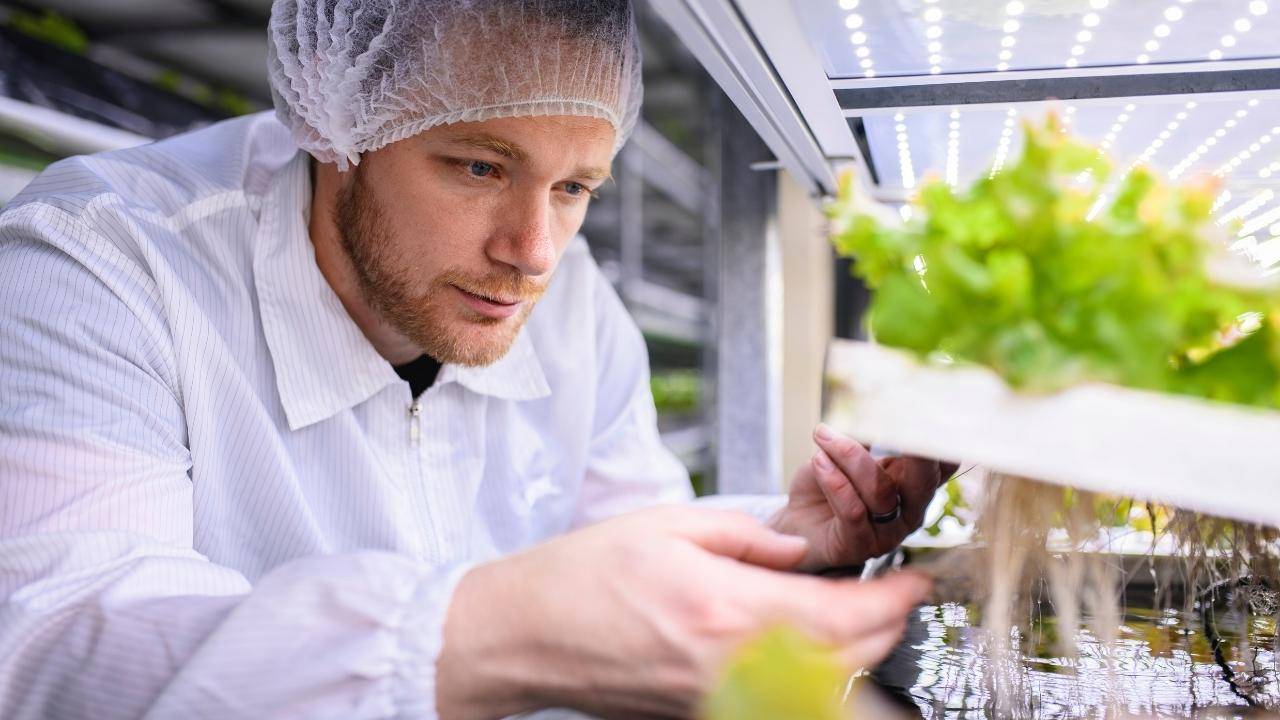The UK is experiencing a rise in vertical farming, which is a way to grow herbs, salads, and some fruits indoors year-round.According to the Guardian, this is the future of farming. The world’s largest vertical farm was built in June in Lydney, Gloucestershire, on the site of an old forge. The CEO of this vertical farm, James Lloyd-Jones, says that in ten years, the UK could grow all its herbs this way.
“Vertical farms will become the norm within the supply chain and probably take away greenhouse production and imports. The seeds of this revolution are being sown – in vertically stacked layers of sheep’s wool – at JFCo’s innovation centre in Bristol. Lloyd-Jones said: “Vertical farming can grow anything. It just grows lots of things too expensively to be commercially viable, so here is where we are learning how to commercialise it.”
Lloyd-Jones strictly controls all parameters of his vertical farm — the temperature, humidity, and carbon dioxide, the light-dark cycle, and the nutrients the plants get. Thanks to this control, there’s no need for sunlight, but the plants still get everything they need.
This kind of farming has loads of benefits: there’s less impact on nature, less wastage, and no run-off pesticides into waterways. In fact, there’s no need for herbicides and pesticides at all because the plants are indoors all the time.
Vertical farming sounds promising, so let’s hope it’ll bring fruitful results and that more farmers will turn to it.
More inspiring green news similar to this:


